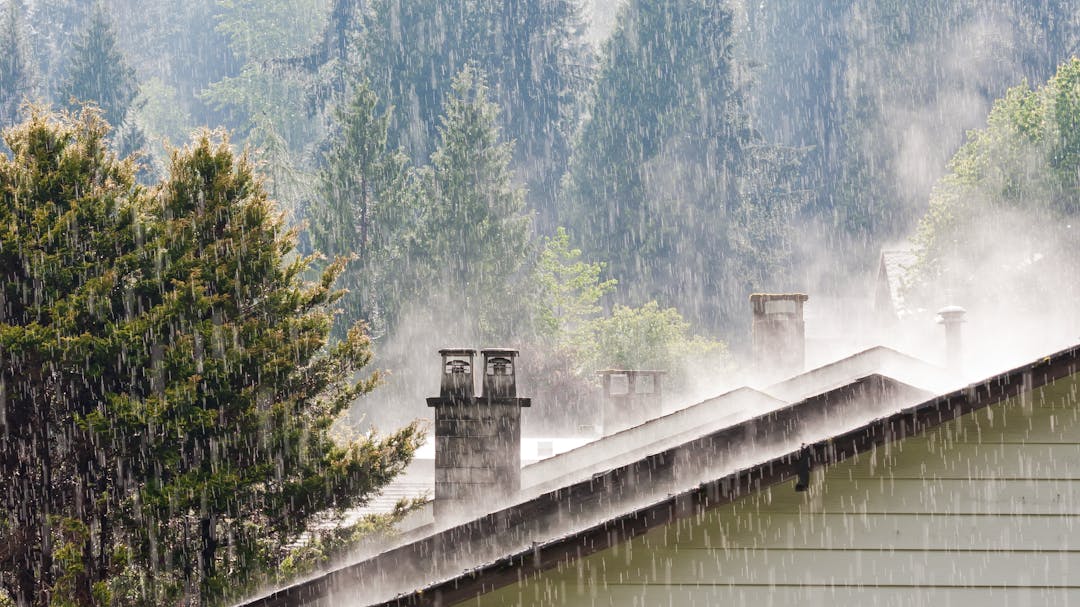Stormwater Master Plan Update

Project Background
The City of Wilsonville is finalizing its project to update the Stormwater Master Plan. The City's Stormwater Master Plan is a comprehensive planning document that guides how the community will address and manage urban storm runoff in the future. Managing the City's stormwater helps protect the environment, property, and supports healthy watersheds for fish, wildlife, and recreation. This video from the Environmental Protection Agency provides a more in-depth explanation of the benefits.
The Draft plan is scheduled for review at public hearings before the Planning Commission (March 13) and the City Council (April 1) prior to adoption. Adoption of the Stormwater Master Plan is anticipated in April 2024.
In 2021, in conjunction with the initiation of the Stormwater Master Plan, a public survey was developed to inform and guide the master planning process. As the Stormwater Master Planning process concludes, we’d like to hear your current thoughts about Wilsonville’s stormwater services and any stormwater-related topics you’d like to learn more about.
To take the Stormwater Survey and learn more about Wilsonville’s stormwater system use the tabs below. Have a question? Submit it for our project managers under the "Master Plan Update FAQ" tab.
Project Background
The City of Wilsonville is finalizing its project to update the Stormwater Master Plan. The City's Stormwater Master Plan is a comprehensive planning document that guides how the community will address and manage urban storm runoff in the future. Managing the City's stormwater helps protect the environment, property, and supports healthy watersheds for fish, wildlife, and recreation. This video from the Environmental Protection Agency provides a more in-depth explanation of the benefits.
The Draft plan is scheduled for review at public hearings before the Planning Commission (March 13) and the City Council (April 1) prior to adoption. Adoption of the Stormwater Master Plan is anticipated in April 2024.
In 2021, in conjunction with the initiation of the Stormwater Master Plan, a public survey was developed to inform and guide the master planning process. As the Stormwater Master Planning process concludes, we’d like to hear your current thoughts about Wilsonville’s stormwater services and any stormwater-related topics you’d like to learn more about.
To take the Stormwater Survey and learn more about Wilsonville’s stormwater system use the tabs below. Have a question? Submit it for our project managers under the "Master Plan Update FAQ" tab.
-
Our Stormwater System
Share Our Stormwater System on Facebook Share Our Stormwater System on Twitter Share Our Stormwater System on Linkedin Email Our Stormwater System linkWhat is stormwater?
Stormwater is the runoff generated from rainfall or snowmelt. When the runoff doesn’t soak into the soil, it flows over impervious surfaces like roads, sidewalks, parking lots, and rooftops or even pervious surfaces like lawns. Runoff enters our wetlands and streams including Boeckman Creek, Coffee Lake Creek, and the Willamette River.
How does stormwater impact me and my property?
Stormwater runoff can impact you and your property in a number of ways if not managed properly. When stormwater flows, it can carry pollutants like trash, oil, and dirt/sediment that can harm fish, plants, wildlife, and people. The increased flow due to development (and increasing impervious surfaces) can also lead to stream erosion, flooding, and other in channel impacts.
Why do we need to manage stormwater?
We need to manage our stormwater to protect the environment, property, and support healthy watersheds for fish, wildlife, and recreation. We also need to manage stormwater to meet regulatory requirements from the Oregon Department of Environment Quality (DEQ).
How does Wilsonville currently manage its stormwater?
The Community Development and Public Works departments manage stormwater for the city. In cooperation the departments plan, regulate, operate, and administer the stormwater collection and treatment systems in Wilsonville.
A variety of standards, policies, and regulations guide the program. The City operates under a Municipal Separate Storm Sewer (MS4) permit from Oregon DEQ that requires programs and projects to be implemented to manage stormwater. This permit reflects the City’s compliance with the Federal Clean Water Act and EPA regulations.
In addition, the City has a Stormwater Master Plan that guides capital projects and programs to manage storm drainage infrastructure. In 2021, the city initiated a process to update the 2012 Stormwater Master Plan. The 2024 Stormwater Master Plan update is anticipated to be adopted in April 2024.
Other documents that detail stormwater program and project activities include the Wilsonville’s Erosion Control Program, and Public Works Standards for design and construction for stormwater and surface water management.
What is included in the 2024 Stormwater Master Plan update?
The update of the Stormwater Master Plan is a comprehensive planning document that includes project, program, and policy recommendations to improve and enhance the performance of the storm drainage infrastructure throughout the city over the next 20-year planning period. In the Plan the city identified 15 capital projects and four planning projects to improve the stormwater system, as well as six annual stormwater programs. These include:
Table ES-1. Capital Project Costs and Schedule
Project Number a
Project Name
Objectives Addressed b
Estimated
CostImplementation Schedule
Near-term (2024-28)
Mid-term
(2029-33)
Long-term
(2034-43)
Capital Projects
BC-1
Library Pond Retrofit
- Capacity
- Water Quality
- Infrastructure Need
$1,880,000
X
BC-2
Ash Meadows Flow Mitigation
- Capacity
- Water Quality
$2,940,000
X
BC-3-
Phase 1Wiedemann Ditch and Canyon Creek Park Retrofit, Phase 1
- Capacity
- Water Quality
$4,860,000
X
BC-3-
Phase 2Wiedemann Ditch and Canyon Creek Park Retrofit, Phase 2
- Capacity
- Water Quality
$7,210,000
X
BC-4
Boeckman Creek Stabilization at Colvin Lane
- Erosion/Sediment Control
- Repair/Replacement
- Maintenance
$410,000
X
BC-5
Memorial Park Swale Retrofit
- Water Quality
- Erosion/Sediment Control
- Maintenance
$910,000
X
BC-6
Gesellschaft Water Well Channel Restoration
- Erosion/Sediment Control
- Maintenance
$400,000
X
CLC-1-Phase 1
Day Road Stormwater Improvements, Phase 1
- Repair/Replacement
- Capacity
$8,020,000
X
CLC-1-Phase 2
Day Road Stormwater Improvements, Phase 2
- Capacity
$3,930,000
X
CLC-2
Arrowhead Creek Culvert Replacement at Arrowhead Creek Trail
- Repair/Replacement
- Maintenance
$290,000
X
CLC-3
Garden Acres Pond Retrofit
- Capacity
- Water Quality
$3,780,000
X
NC-1
Frog Pond East and South Conveyance Pipe Installation
- Infrastructure Need
$4,090,000
X
WR-1-Phase 1
SW Willamette Way/Morey’s Landing Stormwater Improvements, Phase 1
- Capacity
- Water Quality
$2,310,000
X
WR-1-Phase 2
SW Willamette Way/Morey’s Landing Stormwater Improvements, Phase 2
- Capacity
$1,080,000
X
WR-2-Phase 1
Miley Road Stormwater Improvements, Phase 1
- Repair/Replacement
- Erosion/Sediment Control
- Maintenance
$820,000
X
WR-2-Phase 2
Miley Road Stormwater Improvements, Phase 2
- Repair/Replacement
- Maintenance
$10,510,000
X
WR-3
Rose Lane Culvert Replacement
- Capacity
- Maintenance
$200,000
X
WR-4-Phase 1
Charbonneau East Stormwater Improvements, Phase 1
- Capacity
- Repair/Replacement
$600,000
X
WR-4-Phase 2
Charbonneau East Stormwater Improvements, Phase 2
- Repair/Replacement
- Maintenance
$4,440,000
X
WR-5
Charbonneau West Stormwater Improvements
- Repair/Replacement
- Maintenance
$10,370,000
X
City-wide Planning Projects
City-1
Flow Monitoring and Rain Gauge Installation
- Capacity
$100,000
X
City-2
Hydromodification Assessment and Stream Survey
- Erosion/Sediment Control
$30,000/
event
X
X
X
City-3
Porous Pavement Pilot Study
- Water Quality
$100,000
X
City-4
Boeckman Creek Geotechnical Evaluation
- Erosion/Sediment Control
$150,000
X
TOTAL:
$19.14M
$20.85M
$29.53M
a. CP numbering reflects the following drainage basins: BC = Boeckman Creek, CLC = Coffee Lake Creek, WR = Willamette River, NC = Newland Creek. City-wide planning projects are designated as “City”.
b. Primary objectives addressed are identified in BOLD.
Table ES-2. Program Costs
Project Number
Project Name
Objective(s) Addressed
Estimated Annual Cost
City-Wide Programs
P-1
Local Drainage Improvements Program
- Infrastructure Need
- Capacity
$100,000/yr
P-2
Water Quality Retrofit Program
- Water Quality
- Capacity
$200,000/yr
P-3
City-wide Repair/Replacement Program
- Repair/Replacement
- Maintenance
$275,000/yr
P-4
Charbonneau Repair/Replacement Program
- Repair/Replacement
- Maintenance
$1,920,000/yr
P-5
Riparian Vegetation Management Program
- Maintenance
- Water Quality
$25,000/yr
P-6
Vegetative Facility Maintenance Program
- Water Quality
- Maintenance
$25,000/yr
Annual Total
$2,545,000/yr
Note: Primary objectives addressed are identified in BOLD.
To inform and help guide the planning process, a public survey was developed in 2021.
What makes up Wilsonville’s current stormwater system?
Wilsonville has a comprehensive system to actively manage stormwater runoff.
-
Conveyance system:
- pipes, culverts, natural channels, and constructed channels
- 81 miles of public storm water mains; plus, approximately 43 miles of private lines
-
2,361 public manholes; plus, approximately 640 private manholes
-
Low impact development, green infrastructure:
Wilsonville’s required method for stormwater management, whereby stormwater runoff is controlled and treated through a system of decentralized and integrated facilities, such as rain gardens, vegetated swales, and planter boxes. In comparison, conventional stormwater management relied on an “end- of-pipe” approach, which utilized large detention ponds and other facilities not integrated into development sites.
-
Water quality and healthy streams and wetlands:
A variety of aquatic organisms depend on healthy streams and wetlands to support their life cycles. In Wilsonville’s streams and wetlands, such as Boeckman Creek and the Coffee Lake wetlands, Chinook salmon, steelhead, red-legged frogs, and other vulnerable species need clean water and suitable habitat.
What can residents do to help manage stormwater in their neighborhoods?
Here are a few simple things you can do to help manage stormwater in your neighborhood:
- Clean up leaves and debris around storm drains
- Vegetate bare ground to limit erosion and sediment transport
- Pick up lawn clippings
- Clean up after your pets
- Dispose of contaminants properly
- Clean your car at a commercial car wash
- Check your car for leaking fluids and recycle motor oil
How are stormwater services paid for?
Stormwater services are paid for as part of residential and commercial utility bills.
Who's Listening
-
Phone 503-570-1570 Email rappold@ci.wilsonville.or.us -
Environmental Specialist
JCPhone 503-570-1552 Email jcartan@ci.wilsonville.or.us
Lifecycle
-
Initiation & Public Outreach
Stormwater Master Plan Update has finished this stageSurvey community stakeholders to inform project needs and levels of service.
-
Data Review
Stormwater Master Plan Update has finished this stageCompile and analyze survey results and additional data to inform project and program needs.
-
System Assessment
Stormwater Master Plan Update has finished this stageEvaluate system capacity, project needs and associated costs.
-
Develop Draft Plan
Stormwater Master Plan Update has finished this stageSummarize findings and recommendations; prepare Stormwater Master Plan Update for City Council review.
-
Public Review of Draft Plan
Stormwater Master Plan Update is currently at this stagePlease provide written comments by Monday, February 26.
-
Submit Final Plan to City Council
this is an upcoming stage for Stormwater Master Plan UpdateThe 2024 Stormwater Master Plan Update is scheduled for review at public hearings before the Planning Commission (Mar. 13) and the City Council (Apr.1).



